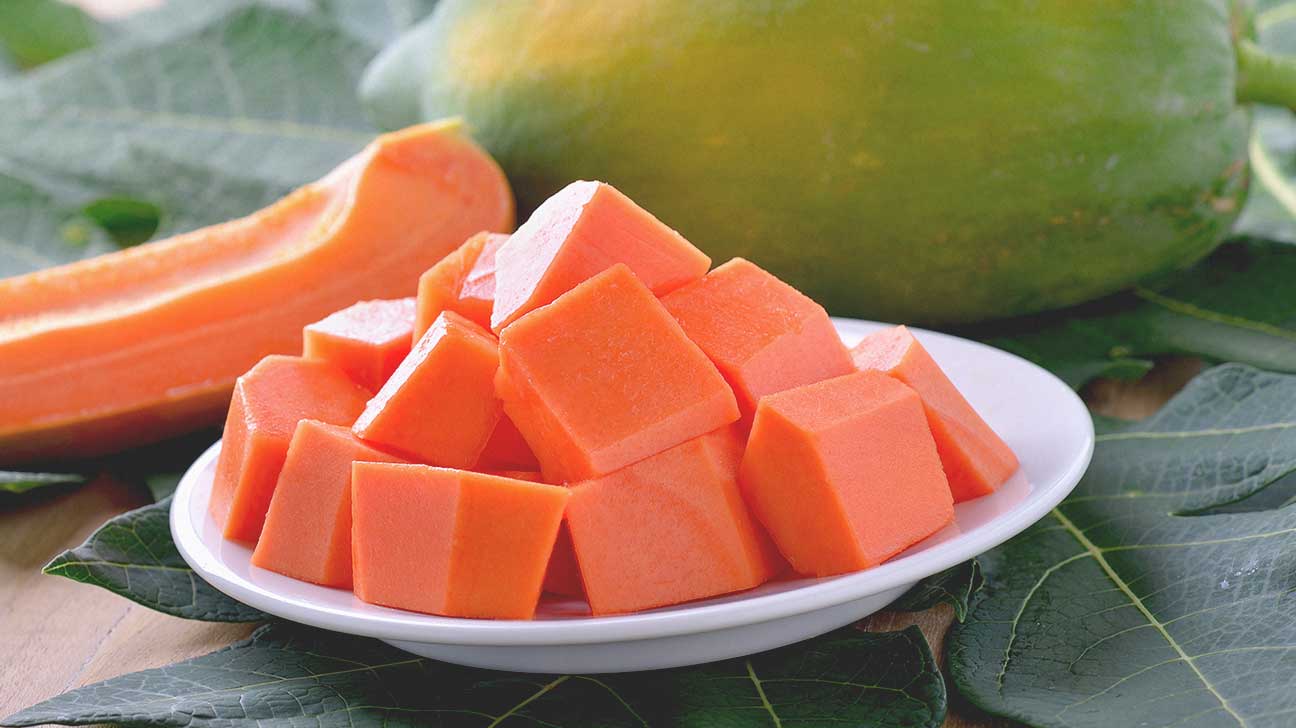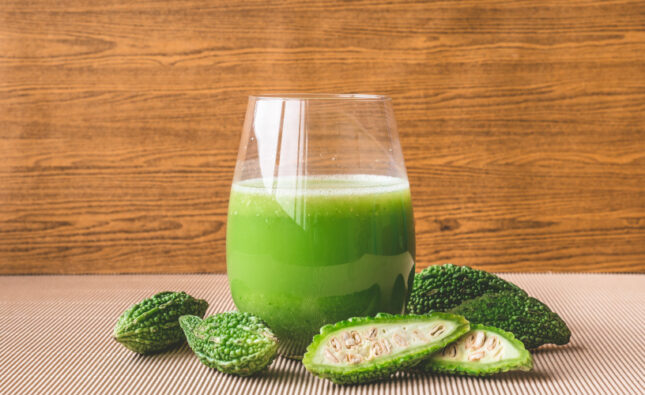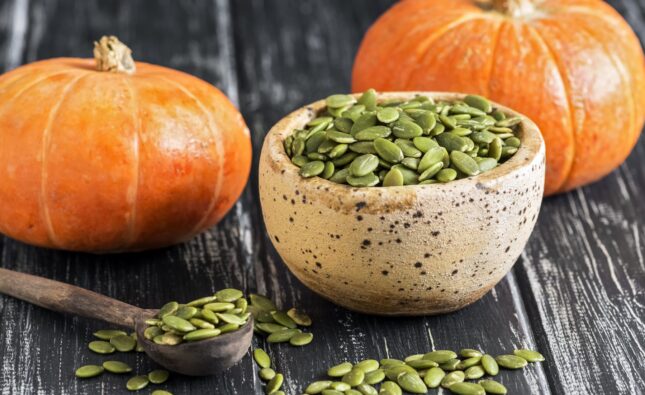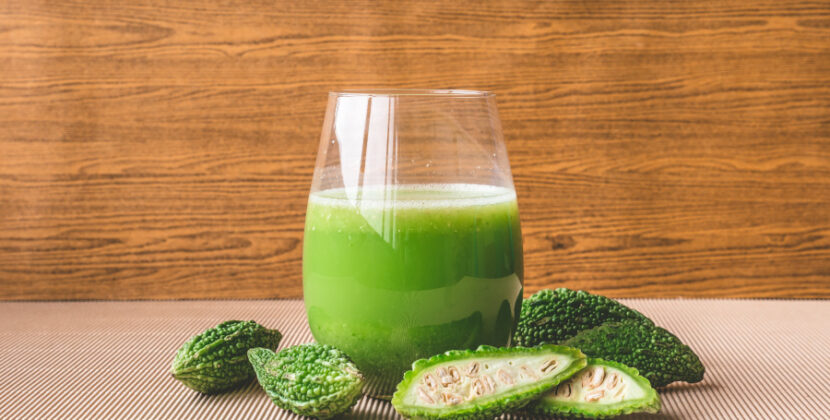Health Benefits of Papaya
Papaya, scientifically known as Carica papaya, is a tropical fruit that is native to the Americas but is now grown in many other parts of the world. It is characterized by its large size, typically weighing 1-2 pounds (0.5-1 kilogram) and measuring around 6-20 inches (15-50 centimetres) in length. The fruit has a greenish-yellow or orange skin, depending on its ripeness, and a sweet, juicy, and slightly musky flesh.
Papaya fruit has a unique flavor that is often described as a blend of melon, mango, and citrus. The flesh of ripe papaya is a vibrant orange or pinkish color, with numerous small black seeds clustered in the central cavity. The seeds are edible but are usually discarded due to their bitter taste.
Papaya is consumed both raw and cooked in various culinary preparations. It is commonly used in salads, smoothies, juices, jams, and desserts. In addition to its delicious taste, papaya is also highly regarded for its nutritional and health benefits, as mentioned in the previous response.
Apart from the fruit, papaya trees also have other parts that can be used. The leaves of the papaya tree are sometimes used in cooking, particularly in Southeast Asian cuisine, and are believed to have medicinal properties. Additionally, papain, an enzyme derived from the fruit’s latex, is used as a meat tenderizer and in various industrial and pharmaceutical applications.
Here are some of the key health benefits of papaya:
1. Rich in nutrients:
Papaya is packed with essential nutrients like vitamins A, C, and E, folate, potassium, and fiber. These nutrients support overall health and contribute to the proper functioning of various body systems.
2. Digestive health:
Papaya contains an enzyme called papain, which aids in digestion by breaking down proteins. It can help improve digestion and prevent constipation. Additionally, the fiber content in papaya promotes regular bowel movements and supports a healthy digestive system.
3. Boosts immune system:
The high vitamin C content in papaya helps boost the immune system and protects against illnesses and infections. It also acts as an antioxidant, protecting cells from damage caused by free radicals.
4. Anti-inflammatory properties:
Papaya contains several compounds, such as papain and chymopapain, that have anti-inflammatory properties. These compounds can help reduce inflammation in the body and alleviate symptoms of conditions like arthritis.
5. Supports heart health:
The antioxidants and fiber in papaya can help lower cholesterol levels, reducing the risk of heart disease. The fruit is also rich in potassium, which helps regulate blood pressure and maintain a healthy heart.
6. Skin health:
Papaya is often used in skincare products due to its exfoliating and moisturizing properties. Eating papaya can also promote healthy skin from within due to its high vitamin C and antioxidants, which can help reduce wrinkles and improve overall skin texture.
7. Eye health:
The high levels of vitamin A and beta-carotene in papaya contribute to good eye health. These nutrients help prevent age-related macular degeneration, reduce the risk of cataracts, and maintain overall vision.
8. Anti-cancer properties:
Papaya contains various phytochemicals, including lycopene and beta-carotene, which have been associated with a reduced risk of certain types of cancer, such as colon and prostate cancer.
9. Weight management:
Papaya is a low-calorie and fiber-rich fruit, making it a good choice for those trying to maintain or lose weight. The fiber content helps promote feelings of fullness, reducing overeating and aiding in weight management.
10. Anti-aging effects:
The antioxidants in papaya help fight against the damage caused by free radicals, which can accelerate the aging process. Regular consumption of papaya may help slow down the signs of aging and promote a youthful appearance.
Nutritional value of papaya
Papaya is not only a tasty fruit but also a nutritious one. Here is the approximate nutritional value of 1 cup (140 grams) of diced papaya:
- Calories: 62
- Carbohydrates: 16 grams
- Fiber: 2.5 grams
- Sugars: 11 grams
- Fat: 0.4 grams
- Protein: 1 gram
- Vitamin C: 87.9 milligrams (146% of the daily recommended intake)
- Vitamin A: 1,922 international units (IU) (38% of the daily recommended intake)
- Folate: 53 micrograms (13% of the daily recommended intake)
- Potassium: 358 milligrams (10% of the daily recommended intake)
- Vitamin E: 0.8 milligrams (4% of the daily recommended intake)
- Magnesium: 15 milligrams (4% of the daily recommended intake)
Papaya is also a good source of other vitamins and minerals, including vitamin K, vitamin B6, vitamin E, calcium, and phosphorus, although in smaller amounts.







